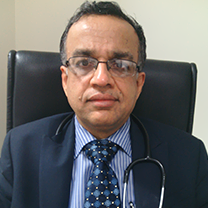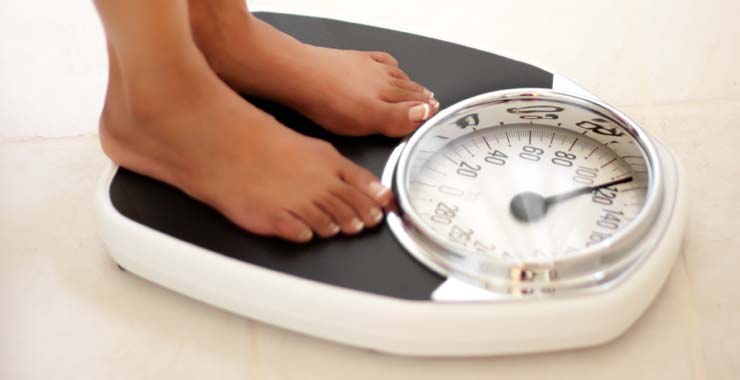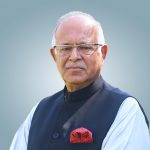World Diabetes Day, celebrated on November 14 every year, is a global campaign aimed at increasing awarenessof a condition that millions of people all around the world live with every day.
As a kidney specialist it is my duty to educate the general public about the role of kidneys in maintaining optimal health and also about various aspects of kidney diseases.
The aim is to create awarenessabout risk factors for kidney disease, aboutpreventive behaviors and increasing knowledge about how to live with Diabetic kidney disease.
The prevalence of Chronic Kidney Disease (CKD) is increasing. Initially it was believed that 15-20 out of every 100 people have some stage of CKD. Prelimnary results are now available form an ongoing nationwide study for early detection of CKD conducted by the Indian Society of Nephrology leadership in collaboration with Astra Zeneca Pharma . This study was conducted in collaboration with 1100 physicians all over the country.
So far screened 150000 persons all over the country: 45% of these were in tier 1 cities and 55% in tier 2 and tier 3 cities. The age of the study group was 57.6 years. Of these 59.1% had diabetes. The studyreveals that 31.3% of the population screened had microalbuminuria which is one of the earliest indicators of CKD. This is much more than the prevalence of CKD reported in earlier studies.
Data reveals that CKD is now emerging as the5th leading cause of death worldwide. Unlike heart disease and cancer the prevalence is increasing. Kidney disease is a silent killer and unlike heart disease and cancer the symptoms often come very late.
Our study from SGPGI Lucknow in 1999 was amongst the earliest to show that Diabetes ( which was then considered a rich man’s disease ) was emerging as the commonest cause of end stage renal disease in our country. Subsequent data from the registry of Indian Society of Nephrology has validated our findings that Diabetes is now the leading causes of CKD. Also am alarming observation was that majority of the patients are coming to the nephrologists in stage 4 and stage 5 CKD. Both of these are lifestyle diseases and are essentially preventable.
Recent studies have shown that a persistent and ongoing CKD knowledge gap exists, one that is demonstrable at all levels of healthcare: amongst primary care physicians, nurses, dialysis technicians, the public as well as the policy makers.
This has been compounded by the unbridled proliferation of social media platforms like Facebook , YouTube, Instagram and Twitter. The COVID pandemic resulting in lockdowns has further acclerated the growth of the social media.The commercial nature of these platforms often results in widespread proliferation of content that is not proven to be true by scientific methodology. The only measure of success in social media is the popularity of the post and the number of followers both of which can be manipulated by commercial tools like boosting. A lot of this information would not hold water if tested by standard scientific methodology.
The poorly informed public and patients find it challenging to access scientifically authentic and validated information. This is especially true for developing countries like India where there is a proliferation of quacks and untested therapies and regulatory mechanism are lax. A significant number of them often land up in the hands of these quacks loosing precious time as well as money.
The widening knowledge gap is hampering the fight against kidney disease, and increasing the inherent associated mortality. Thus bridging the knowledge gap is the key to achieve Kidney health for All and was the theme for World Kidney Day 2022.
The World Kidney Day Joint Steering Committee calls for everyone worldwide to not only be aware of the disease, but to actively know what their own kidney health measures are. For example, what is their blood pressure and what are the target levels and the treatment objectives. It is a cause that involves all of us in the kidney community worldwide — doctors (both nephrologists as well as primary care physicians), scientists, nurses and other health-care providers, patients, administrators, health-policy experts, government officials, nephrology organizations, and foundations. All need to be aware of the ways in which more focus to the kidney health in the setting of government policies can lead to major benefits both to patients and to health-care budget. Commmunity screening for microalbuminuria needs to be done as part of the aNational Kidney Screeeningprogramme.
Our community survey has shown that this is averysimple and easy test which can be done by simple urine dipstick as a point of care (POC) testing . It needs to be done in the first morning urine specimen . It should be repeated for confirmation in a laboratory once if the initial test is positive along with serum creatinine value and an estimated GFR (eGFR). The importance of detecting microalbumin in urine is that it is the earliest indicator of kidney damage and often preceeds the increase in urea and creatinine whichwere once considered the gold standard for diagnosing CKD. Microalbuinuria is also a marker for heart diseases and hence it can help select patients who can be screened for Cardio vasculardiseases.
In addition we now have a plethora of new drugs which can be used for the reduction of microalbuminuria. Earlier on the only group of drugs that were available were the Angiotensinconverting enzyme inhibitors (ACEI) like ramipril or angiotensin receptor blockers. However over the last few years 4th generation calcium channel blockers ( cilindepin, bendepin azelendepin) are now available which help in blood pressure control as well as reduction of microalbuimn leakage in the urine.
In addition the Flozins ( dapagliflozin, Empagliflozin, Canagliflozin) have been a very useful addition in the therapeutic armamentarium. These drugs have revolutionized the treatment of Diabetes as well as lead to dramatic reductions in CKD as well as CVD.
And last but not the least recently another drug Finerenone has been approved for reduction of microalbuminuria in Diabetic Kidney diseases. All these new drugs are easily available in our country now and are much cheaper than the the cost of treating CKD patients with Dialysis or kidney transplant. Several research studies have shown that they add years to life as well as life to years of patients with CKD. Thus a coordinated effort needs is made at all levels of society to address the growing epidemic of Kidney disease and Bridging the Knowledge gap is the key to achieve this as “Knowledge is Power”
Healthy lifestyle choices can help to improve your overall health and thereby lower your risk of developingDiabetes as well as kidney disease and heart disease. Thus it is buy one and and get two free.The following healthy lifestyle choices are a great way to start:
• Don’t smoke ! If you smoke, quitting now is the most important step you can take for your health!
• Maintain a healthy blood pressure, cholesterol and blood sugar levels.
• Maintain a healthy weight. Check with your doctor to learn more about body mass index and to find out what’s right for you . Obesity and being overweight increases your risk of developing Daibetes.
• Eat a healthy diet. Avoid diet rich in simple carbohydrates, saturated fats and excess salt.
• Drink plenty of water and fluids to keep hydrated.
• Try to get 30 mins of exercise, 4 to 5 times a week. Just a half-hour of walking each day will make a big difference. Regular Yoga has also been found to be beneficial and it also acts a stress buster .
(For more information on kidney diseases, visit author’s YouTubechannelDr Sanjeev Gulati Kidney Clinic.)








